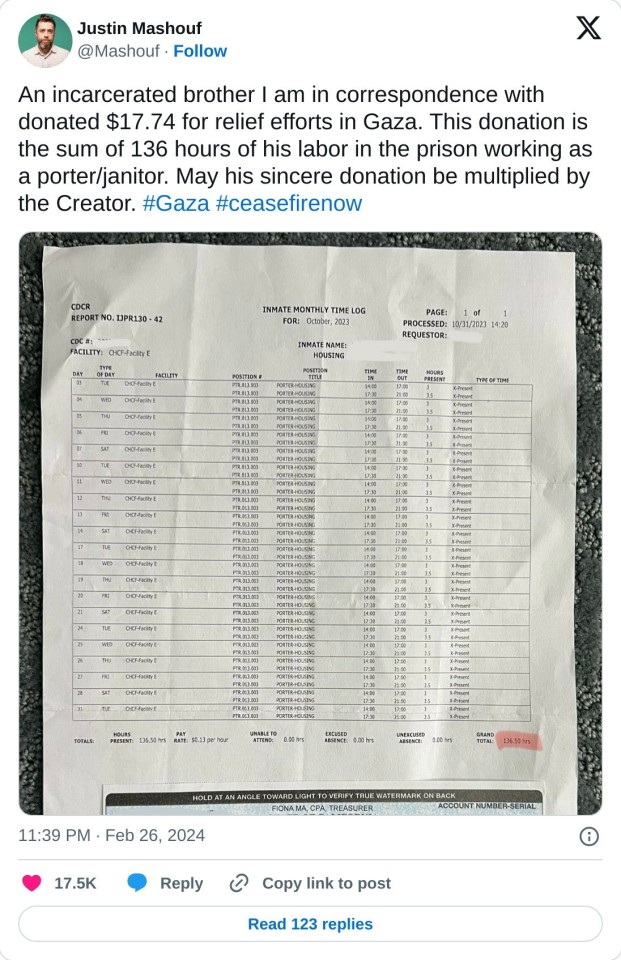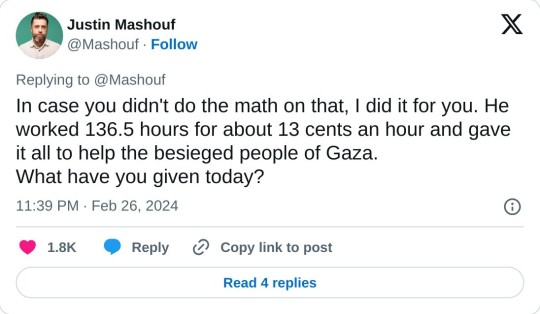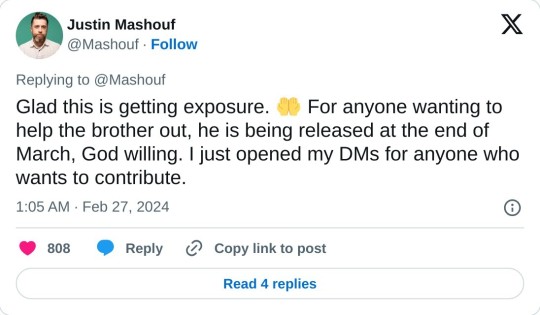#carcerality
Text

Link to tweet
Link to article
2K notes
·
View notes
Text


During the Florida Land Boom of the 1920s, entrepreneurs and real estate developers deployed creative tactics to woo potential clients [...] to invest in Florida land. [...] At Miami Beach, where Indianapolis-based entrepreneur Carl Fisher invested millions in resort development during the 1920s, tourists encountered a surprising attraction: elephants. Two elephants were brought to Miami Beach. They were named Carl II (named after Fisher himself) and Rosie [...]. Seeing the elephants’ work at Miami Beach positions these more-than-human actors in the histories of leisure in South Florida, as they signal the uncomfortable degree to which work and leisure were deeply entangled in this place. [...]
Carl II, came to Miami Beach from Peoria, Illinois, in February of 1921. According to the Miami Daily Metropolis, [E.B.], who owned several circuses in the Midwest, gifted the elephant to Carl Fisher [...]. “I am going to get a million dollars’ worth of advertising out of this elephant.” [...] Carl II also carried advertisements on boards hung over a saddle. [...] Infantilizing Carl II, as reporters often did in the Miami newspapers, seems to have [...] helped uphold his value as a toy of sorts, which supported the idea of Miami Beach as a “playground,” as it was called at the time. [...] [A]rticles stressed, however, that the elephant’s education would involve more than “play.” The Miami Daily Metropolis reported that “Carl, the elephant will be put to work.” This is coupled with language that strikes a disciplinary tone; the reporter stated that “he must earn his keep.” [...] Such work ranged from moving portable houses on the beach to pulling presses on the polo field. Carl also cleared mangrove swamps to make land suited for residential development [...].

Like other resorts that pandered to a growing middle-class market for leisure in the roaring 1920s, Fisher’s venture on Miami Beach was carefully curated as a “playground to the World.”
Just as Henry Flagler had separated “work” from “leisure” by building Palm Beach separate from West Palm Beach in the 1890s, Fisher kept his beach workers’ labor largely invisible - except when it enhanced the tourist experience of its middle- and upper-middle class clientele, as when the elephants caddied on the golf course or stomped divots on the polo field. Fisher’s plan was to attract visitors to Miami Beach to come back year after year [...] [and] to prompt permanent settlement in his island subdivisions. These subdivisions, like his hotels, were meant to be exclusive. [...]
And while this landscape depended on an African American workforce, the city enacted Ordinance 457 in 1936, requiring the more than 5,000 service workers at the time to “register.” In addition to being photographed and fingerprinted, Black workers had to carry identification with them. [...]
---
In March of 1921, Carl II lived at the local fairgrounds [...]. An article in the Miami Daily Metropolis that celebrated Carl II’s presence there also noted that “the fair doors are not open to the colored population this year.” [...]
Part attraction and part workhorse, Carl II moved across spaces dividing work and leisure, non-human and human, and Black and white on which Miami Beach’s status as a “tropical paradise” for the white leisured classes depended. [...] Carl II was shipped off to the Circus in 1926, the same year that a devastating hurricane struck the beach and brought the “boom” years to an end. His companion, Rosie, eventually met the same fate. [...] While Miami Beach was developed as a playground for the white leisure class, its success was inextricably bound with the labor force that built and sustained it.
---
Images, captions, and all text above by: Anna Andrzejewski. “Work, Play, and Elephants in South Florida’s Leisure Landscape.” Edge Effects. 27 April 2023. Published at: edgeeffects.net/miami-beach-elephants/ [Bold emphasis and some paragraph breaks/contractions added by me. Presented here for commentary, teaching, criticism purposes.]
#abolition#ecology#colonial#imperial#multispecies#interspecies#temporal#temporality#elephant#carceral#carcerality
104 notes
·
View notes
Text
Is anyone interested in hearing me rant about indoctrination and how/why it ruins art in a pretty long post?
This message is referred to mostly my Murder Drones and Wakfu audience since those are my main demographic as it stands but realistically I won't put the tags associated to those shows in the description unless I directly name them in the actual post.
#murder drones#wakfu#indoctrination#art analysis#black and white#carcerality#ducktales#kung fu panda#undertale#undertale yellow#deltarune#analysis
7 notes
·
View notes
Text
Us: Shaming, ostracization and other systems that use punishment as deterrent just leads to making unintended collateral of people who are themselves vulnerable and marginalized. Because abuse and systemic violence is rooted inequality, and you will never have more power to punish the privileged than you have to endanger the oppressed. This is why abolition exists. Protecting the victimized has little to do with punishing the guilty.
Some screaming wannabe cop in the notes: YOU'RE ON THE SIDE OF BIGOTS IS THAT IT??? YOU WANT BIGOTS TO NEVER HAVE TO FACE CONSEQUENCE???
Before you say ACAB you need to stop thinking like a cop: that society needs punitive justice and intimidation to maintain order. Otherwise your only problem with violence is that it's not you that's weilding it.
#acab#abolition#carcerality#ableism#social justice#inequality#mental health#ocd#knee of huss#punitive justice
13 notes
·
View notes
Text
as previously established, I am not a particularly devout acolyte of Foucault and I am all for critiquing his stuff. howevwr. some people like to make fun of Foucault/his readers by caricaturing discipline & punish, usually in the form of flippantly saying that he just says everything is like prisons. this (in certain niche circles) became enough of a meme that just deadpanning a sentiment such as "did you know schools are like prisons" invoked the whole thing.
but the thing is that schools are. like prisons? like, any prison abolitionist would tell you so. I stumbled into this reddit thread [content note: child death mentioned at the top] where everyone is comparing notes about their experiences as kids or now as parents with navigating school rules that prohibit students carrying their own medications (Advil, inhalers, epipens) and literally. if you are hiding your painkillers inside an M&Ms container with a loose tampon on top so when teachers search you they'll get embarrassed and give it back without looking further. if you have to sit and aggressively bleed on your desk because your teacher won't let you leave class to handle your nosebleed. if you are not to carry playing cards or any kind because the assumption is you would be gambling if you had them. like, it's not subtle.
anyway if I were a more organized person I'd save the link to this thread to use the next time I see "sChOoLs ArE lIkE pRiSoNs 🤪" because like. 🎶have you ever thought about/taping your big mouth shut cause I have many times🎶 and so on and so forth.
7 notes
·
View notes
Text
Not all free persons are white (nor are they equal or equally free), but slaves are paradigmatically black. And because blackness serves as the basis of enslavement in the logic of a transnational political and legal culture, it permanently destabilizes the position of any nominally free black population. Stuart Hall might call this the articulation of elements of a discourse, the production of a “non-necessary correspondence” between the signifiers of racial blackness and slavery. But it is the historical materialization of the logic of a transnational political and legal culture such that the contingency of its articulation is generally lost to the infrastructure of the Atlantic world that provides Frank Wilderson a basis for the concept of a “political ontology of race.” The United States provides the point of focus here, but the dynamics under examination are not restricted to its bounds. Political ontology is not a metaphysical notion, because it is the explicit outcome of a politics and thereby available to historic challenge through collective struggle. But it is not simply a description of a political status either, even an oppressed political status, because it functions as if it were a metaphysical property across the longue durée of the premodern, modern, and now postmodern eras. That is to say, the application of the law of racial slavery is pervasive, regardless of variance or permutation in its operation across the better part of a millennium.
In Wilderson’s terms, the libidinal economy of antiblackness is pervasive, regardless of variance or permutation in its political economy. In fact, the application of slave law among the free (that is, the disposition that “with respect to the African shows no internal recognition of the libidinal costs of turning human bodies into sentient flesh”) has outlived in the postemancipation world a certain form of its prior operation—the property relations specific to the institution of chattel and the plantation-based agrarian economy in which it was sustained. [Saidiya] Hartman describes this in her 2007 memoir, Lose Your Mother, as the afterlife of slavery: “a measure of man and a ranking of life and worth that has yet to be undone . . . a racial calculus and a political arithmetic that were entrenched centuries ago.” On that note, it is not inappropriate to say that the continuing application of slave law facilitated the reconfiguration of its operation with the passage of the Thirteenth Amendment to the U.S. Constitution, rather than its abolition (in the conventional reading) or even its circumscription “as punishment for crime whereof the party shall have been duly convicted” (on the progressive reading of contemporary critics of the prison-industrial complex). It is the paramount value of Loïc Wacquant’s historical sociology, especially in Wilderson’s hands, that it provides a schema for tracking such reconfigurations of anti-blackness “from slavery to mass imprisonment” without losing track of its structural dimensions, its political ontology.
Jared Sexton, People-of-Color-Blindness: Notes on the Afterlife of Slavery
#quote#jared sexton#slavery#antiblackness#carcerality#frank b. wilderson iii#saidiya hartman#loïc wacquant#afropessimism#*ayden
0 notes
Text
“why do i believe this” and “who benefits from me believing it” are the first steps to decolonization and we should all be doing this more
#seriously how many weird rules do we all uphold#SO MANY#and they are all so jesus flavored and weird a lot of the time#like: okay where does the idea that someone is an unredeemable sinner come from#or that people cannot change#where does the carceral state spring from#why do we believe punishing sinners makes them good people#why do we think we have to set the table a certain way#why do we think violence belongs to power and dutiful service to those without power
86K notes
·
View notes
Text
Prison-tech company bribed jails to ban in-person visits
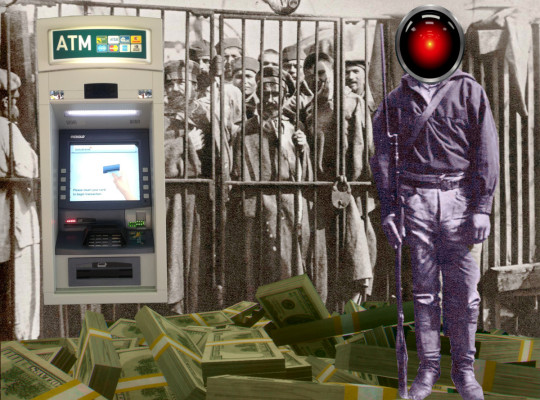
I'm on tour with my new, nationally bestselling novel The Bezzle! Catch me in BOSTON with Randall "XKCD" Munroe (Apr 11), then PROVIDENCE (Apr 12), and beyond!

Beware of geeks bearing gifts. When prison-tech companies started offering "free" tablets to America's vast army of prisoners, it set off alarm-bells for prison reform advocates – but not for the law-enforcement agencies that manage the great American carceral enterprise.
The pitch from these prison-tech companies was that they could cut the costs of locking people up while making jails and prisons safer. Hell, they'd even make life better for prisoners. And they'd do it for free!
These prison tablets would give every prisoner their own phone and their own video-conferencing terminal. They'd supply email, of course, and all the world's books, music, movies and games. Prisoners could maintain connections with the outside world, from family to continuing education. Sounds too good to be true, huh?
Here's the catch: all of these services are blisteringly expensive. Prisoners are accustomed to being gouged on phone calls – for years, prisons have done deals with private telcos that charge a fortune for prisoners' calls and split the take with prison administrators – but even by those standards, the calls you make on a tablet are still a ripoff.
Sure, there are some prisoners for whom money is no object – wealthy people who screwed up so bad they can't get bail and are stewing in a county lockup, along with the odd rich murderer or scammer serving a long bid. But most prisoners are poor. They start poor – the cops are more likely to arrest poor people than rich people, even for the same crime, and the poorer you are, the more likely you are to get convicted or be suckered into a plea bargain with a long sentence. State legislatures are easy to whip up into a froth about minimum sentences for shoplifters who steal $7 deodorant sticks, but they are wildly indifferent to the store owner's rampant wage-theft. Wage theft is by far the most costly form of property crime in America and it is almost entirely ignored:
https://www.theguardian.com/us-news/2023/jun/15/wage-theft-us-workers-employees
So America's prisons are heaving with its poorest citizens, and they're certainly not getting any richer while they're inside. While many prisoners hold jobs – prisoners produce $2b/year in goods and $9b/year in services – the average prison wage is $0.52/hour:
https://www.dollarsandsense.org/archives/2024/0324bowman.html
(In six states, prisoners get nothing; North Carolina law bans paying prisoners more than $1/day, the 13th Amendment to the US Constitution explicitly permits slavery – forced labor without pay – for prisoners.)
Likewise, prisoners' families are poor. They start poor – being poor is a strong correlate of being an American prisoner – and then one of their breadwinners is put behind bars, taking their income with them. The family savings go to paying a lawyer.
Prison-tech is a bet that these poor people, locked up and paid $1/day or less; or their families, deprived of an earner and in debt to a lawyer; will somehow come up with cash to pay $13 for a 20-minute phone call, $3 for an MP3, or double the Kindle price for an ebook.
How do you convince a prisoner earning $0.52/hour to spend $13 on a phone-call?
Well, for Securus and Viapath (AKA Global Tellink) – a pair of private equity backed prison monopolists who have swallowed nearly all their competitors – the answer was simple: they bribed prison officials to get rid of the prison phones.
Not just the phones, either: a pair of Michigan suits brought by the Civil Rights Corps accuse sheriffs and the state Department of Corrections of ending in-person visits in exchange for kickbacks from the money that prisoners' families would pay once the only way to reach their loved ones was over the "free" tablets:
https://arstechnica.com/tech-policy/2024/03/jails-banned-family-visits-to-make-more-money-on-video-calls-lawsuits-claim/
These two cases are just the tip of the iceberg; Civil Rights Corps says there are hundreds of jails and prisons where Securus and Viapath have struck similar corrupt bargains:
https://civilrightscorps.org/case/port-huron-michigan-right2hug/
And it's not just visits and calls. Prison-tech companies have convinced jails and prisons to eliminate mail and parcels. Letters to prisoners are scanned and delivered their tablets, at a price. Prisoners – and their loved ones – have to buy virtual "postage stamps" and pay one stamp per "page" of email. Scanned letters (say, hand-drawn birthday cards from your kids) cost several stamps:
https://pluralistic.net/2024/02/14/minnesota-nice/#shitty-technology-adoption-curve
Prisons and jails have also been convinced to eliminate their libraries and continuing education programs, and to get rid of TVs and recreational equipment. That way, prisoners will pay vastly inflated prices for streaming videos and DRM-locked music.
The icing on the cake? If the prison changes providers, all that data is wiped out – a prisoner serving decades of time will lose their music library, their kids' letters, the books they love. They can get some of that back – by working for $1/day – but the personal stuff? It's just gone.
Readers of my novels know all this. A prison-tech scam just like the one described in the Civil Rights Corps suits is at the center of my latest novel The Bezzle:
https://us.macmillan.com/books/9781250865878/thebezzle
Prison-tech has haunted me for years. At first, it was just the normal horror anyone with a shred of empathy would feel for prisoners and their families, captive customers for sadistic "businesses" that have figured out how to get the poorest, most desperate people in the country to make them billions. In the novel, I call prison-tech "a machine":
a million-armed robot whose every limb was tipped with a needle that sank itself into a different place on prisoners and their families and drew out a few more cc’s of blood.
But over time, that furious empathy gave way to dread. Prisoners are at the bottom of the shitty technology adoption curve. They endure the technological torments that haven't yet been sanded down on their bodies, normalized enough to impose them on people with a little more privilege and agency. I'm a long way up the curve from prisoners, but while the shitty technology curve may grind slow, it grinds fine:
https://pluralistic.net/2021/02/24/gwb-rumsfeld-monsters/#bossware
The future isn't here, it's just not evenly distributed. Prisoners are the ultimate early adopters of the technology that the richest, most powerful, most sadistic people in the country's corporate board-rooms would like to force us all to use.

If you'd like an essay-formatted version of this post to read or share, here's a link to it on pluralistic.net, my surveillance-free, ad-free, tracker-free blog:
https://pluralistic.net/2024/04/02/captive-customers/#guillotine-watch

Image:
Cryteria (modified)
https://commons.wikimedia.org/wiki/File:HAL9000.svg
CC BY 3.0
https://creativecommons.org/licenses/by/3.0/deed.en
--
Flying Logos
https://commons.wikimedia.org/wiki/File:Over_$1,000,000_dollars_in_USD_$100_bill_stacks.png
CC BY-SA 4.0
https://creativecommons.org/licenses/by-sa/4.0/deed.en
--
KGBO
https://commons.wikimedia.org/wiki/File:Suncorp_Bank_ATM.jpg
CC BY-SA 3.0
https://creativecommons.org/licenses/by-sa/3.0/deed.en
#pluralistic#prison#prison-tech#marty hench#the bezzle#securus#captive audiences#St Clair County#human rights#prisoners rights#viapath#gtl#global tellink#Genesee County#michigan#guillotine watch#carceral state#corruption
1K notes
·
View notes
Text
Jim Crow Remixed
The United States is nothing but a chain
Shackled to my legs,
Requiring me to sell my labor for pennies
Be more productive
You must work to live, the US says
You must work to be a member of society
You must work like a slave for us
The US says with liberity and justice for all
But black men and women die at the hands of the police
Trans people die from violence in the street
Students get shot in the very place they are supposed to learn
How is this justice?
Where is the liberty for all of the POCs in prison?
Treated less than human
Beaten and abused
Forced to work,
Forced to be productive
You must work here to be a productive member of society later, The US says
But thats not truth
Because after prison its
No welfare
No Jobs
No help
Soon it’s
Nowhere to stay
No one understands me
I can’t live this way
Then it’s
Doing the best I can but it’s not enough
The only thing I can do is illegal
12 has been watching me from afar
The police are out to get me
UNTIL
I’m back in prison again
The United States is nothing but a chain
Shackled to my legs,
There is no real progress
There is no Justice
There is no liberty
Only a new manifestation
Of the same corruption
Just Jim Crow, remixed
-Shawn
0 notes
Text
Trans Woman Wins Landmark Settlement in Suit Over Mistreatment in Jail
A Black transgender woman who sued officials in Broome County, N.Y., over discrimination, violence, and denial of medical care while incarcerated has won a landmark settlement.
Makyyla Holland sued Broome County, its sheriff, and officials at the Broome County Jail in 2022. Her suit, filed in U.S. District Court for the Northern District of New York, alleged that during the six weeks she spent in county custody in 2021, the Broome County sheriff’s office and its corrections officers discriminated against her on the basis of her sex, transgender status, and disability; housed her with men; beat her; subjected her to illegal strip searches; and denied her access to prescribed medications, including antidepressants and hormone treatments, triggering severe withdrawal symptoms.
265 notes
·
View notes
Note
May I present the best headline I've seen today:

Look, the Fulton County people have already said they plan to give him the full works: fingerprinting, mugshot, perp walk, releasing height/weight, etc, all the usual criminal treatment that he's managed to avoid so far. So yeah, he's gonna fucking HATE it, and if I don't see the mugshot everywhere on everything and made into all the memes you can think of, the internet will have failed me.
#textsfromgravityfallsblog#ask#politics for ts#the giant orange monster#i don't approve of the carceral system etc etc but also if there is anyone who deserves the worst the american prison system has to offer#it's the fucking orange fuhrer#so yeah
1K notes
·
View notes
Text
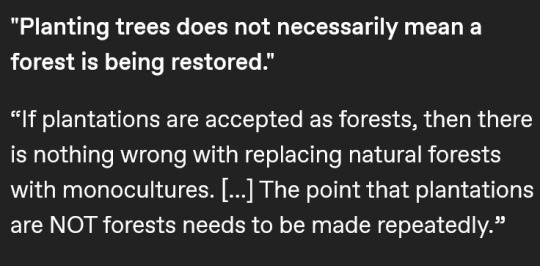
Despite its green image, Ireland has surprisingly little forest. [...] [M]ore than 80% of the island of Ireland was [once] covered in trees. [...] [O]f that 11% of the Republic of Ireland that is [now] forested, the vast majority (9% of the country) is planted with [non-native] spruces like the Sitka spruce [in commercial plantations], a fast growing conifer originally from Alaska which can be harvested after just 15 years. Just 2% of Ireland is covered with native broadleaf trees.
Text by: Martha O’Hagan Luff. “Ireland has lost almost all of its native forests - here’s how to bring them back.” The Conversation. 24 February 2023. [Emphasis added.]
---
[I]ndustrial [...] oil palm plantations [...] have proliferated in tropical regions in many parts of the world, often built at the expense of mangrove and humid forest lands, with the aim to transform them from 'worthless swamp' to agro-industrial complexes [...]. Another clear case [...] comes from the southernmost area in the Colombian Pacific [...]. Here, since the early 1980s, the forest has been destroyed and communities displaced to give way to oil palm plantations. Inexistent in the 1970s, by the mid-1990s they had expanded to over 30,000 hectares. The monotony of the plantation - row after row of palm as far as you can see, a green desert of sorts - replaced the diverse, heterogenous and entangled world of forest and communities.
Text by: Arturo Escobar. "Thinking-Feeling with the Earth: Territorial Struggles and the Ontological Dimension of the Epistemologies of the South." Revista de Antropologia Iberoamericana Volume 11 Issue 1. 2016. [Emphasis added.]
---
But efforts to increase global tree cover to limit climate change have skewed towards erecting plantations of fast-growing trees [...] [because] planting trees can demonstrate results a lot quicker than natural forest restoration. [...] [But] ill-advised tree planting can unleash invasive species [...]. [In India] [t]o maximize how much timber these forests yielded, British foresters planted pines from Europe and North America in extensive plantations in the Himalayan region [...] and introduced acacia trees from Australia [...]. One of these species, wattle (Acacia mearnsii) [...] was planted in [...] the Western Ghats. This area is what scientists all a biodiversity hotspot – a globally rare ecosystem replete with species. Wattle has since become invasive and taken over much of the region’s mountainous grasslands. Similarly, pine has spread over much of the Himalayas and displaced native oak trees while teak has replaced sal, a native hardwood, in central India. Both oak and sal are valued for [...] fertiliser, medicine and oil. Their loss [...] impoverished many [local and Indigenous people]. [...]
India’s national forest policy [...] aims for trees on 33% of the country’s area. Schemes under this policy include plantations consisting of a single species such as eucalyptus or bamboo which grow fast and can increase tree cover quickly, demonstrating success according to this dubious measure. Sometimes these trees are planted in grasslands and other ecosystems where tree cover is naturally low. [...] The success of forest restoration efforts cannot be measured by tree cover alone. The Indian government’s definition of “forest” still encompasses plantations of a single tree species, orchards and even bamboo, which actually belongs to the grass family. This means that biennial forest surveys cannot quantify how much natural forest has been restored, or convey the consequences of displacing native trees with competitive plantation species or identify if these exotic trees have invaded natural grasslands which have then been falsely recorded as restored forests. [...] Planting trees does not necessarily mean a forest is being restored. And reviving ecosystems in which trees are scarce is important too.
Text by: Dhanapal Govindarajulu. "India was a tree planting laboratory for 200 years - here are the results." The Conversation. 10 August 2023. [Emphasis added.]
---
Nations and companies are competing to appropriate the last piece of available “untapped” forest that can provide the most amount of “environmental services.” [...] When British Empire forestry was first established as a disciplinary practice in India, [...] it proscribed private interests and initiated a new system of forest management based on a logic of utilitarian [extraction] [...]. Rather than the actual survival of plants or animals, the goal of this forestry was focused on preventing the exhaustion of resource extraction. [...]
Text by: Daniel Fernandez and Alon Schwabe. "The Offsetted." e-flux Architecture (Positions). November 2013. [Emphasis added.]
---
At first glance, the statistics tell a hopeful story: Chile’s forests are expanding. […] On the ground, however, a different scene plays out: monocultures have replaced diverse natural forests [...]. At the crux of these [...] narratives is the definition of a single word: “forest.” [...] Pinochet’s wave of [...] [laws] included Forest Ordinance 701, passed in 1974, which subsidized the expansion of tree plantations [...] and gave the National Forestry Corporation control of Mapuche lands. This law set in motion an enormous expansion in fiber-farms, which are vast expanses of monoculture plantations Pinus radiata and Eucalyptus species grown for paper manufacturing and timber. [T]hese new plantations replaced native forests […]. According to a recent study in Landscape and Urban Planning, timber plantations expanded by a factor of ten from 1975 to 2007, and now occupy 43 percent of the South-central Chilean landscape. [...] While the confusion surrounding the definition of “forest” may appear to be an issue of semantics, Dr. Francis Putz [...] warns otherwise in a recent review published in Biotropica. […] Monoculture plantations are optimized for a single product, whereas native forests offer [...] water regulation, hosting biodiversity, and building soil fertility. [...][A]ccording to Putz, the distinction between plantations and native forests needs to be made clear. “[...] [A]nd the point that plantations are NOT forests needs to be made repeatedly [...]."
Text by: Julian Moll-Rocek. “When forests aren’t really forests: the high cost of Chile’s tree plantations.” Mongabay. 18 August 2014. [Emphasis added.]
#abolition#ecology#imperial#colonial#landscape#haunted#indigenous#multispecies#interspecies#temporality#carceral#plantations
2K notes
·
View notes
Text
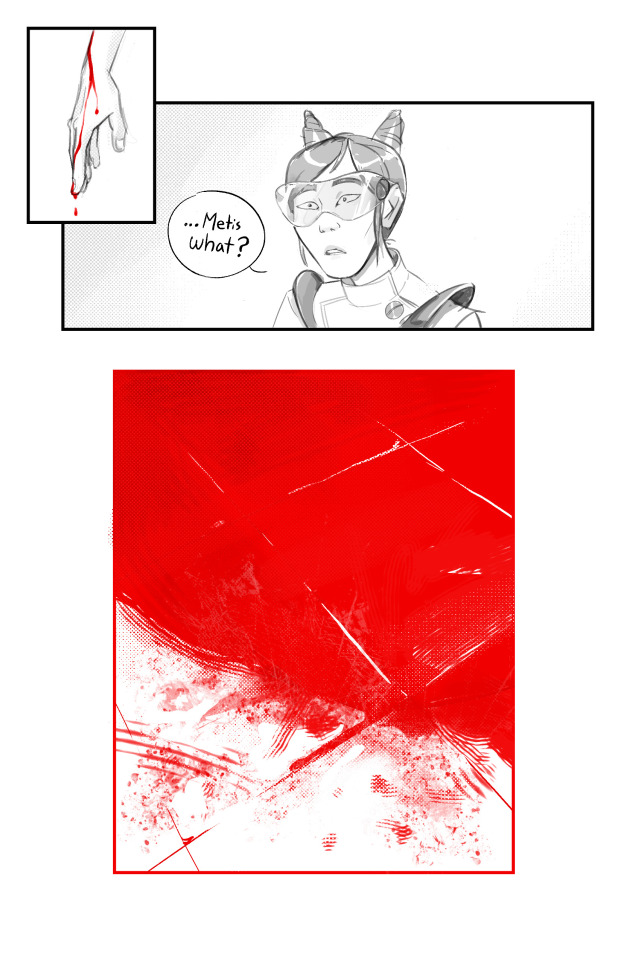
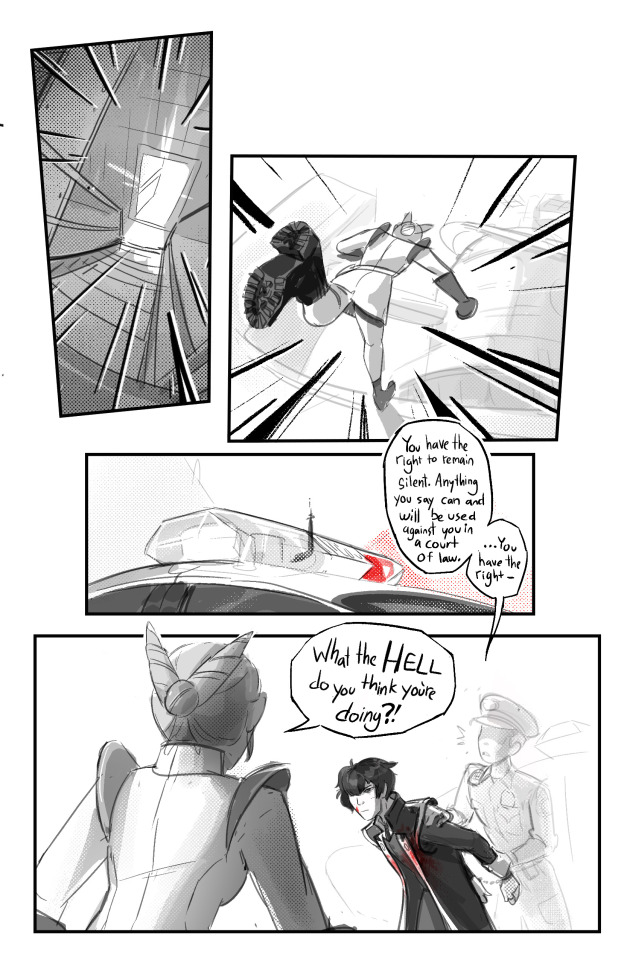
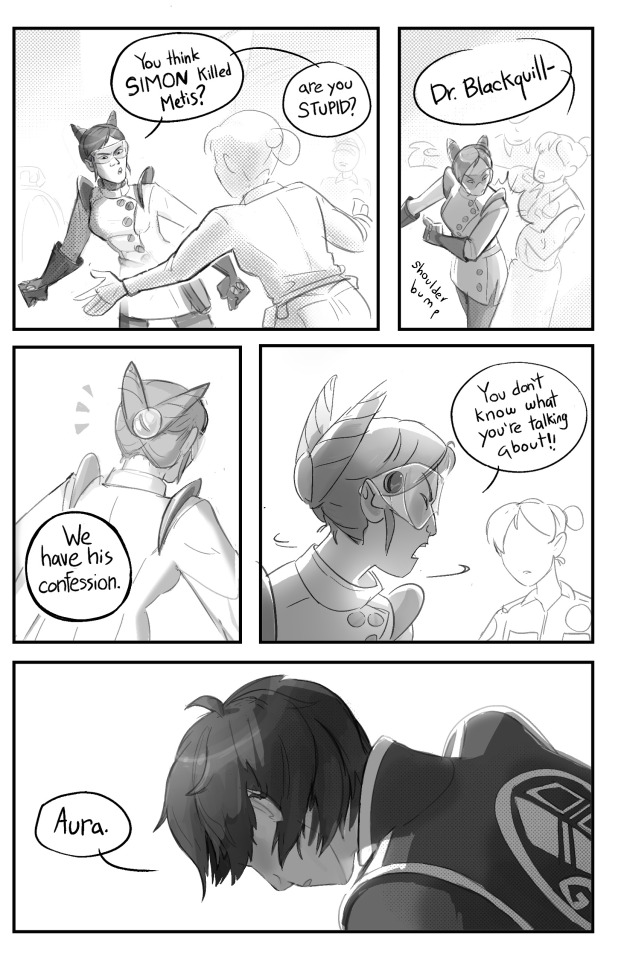

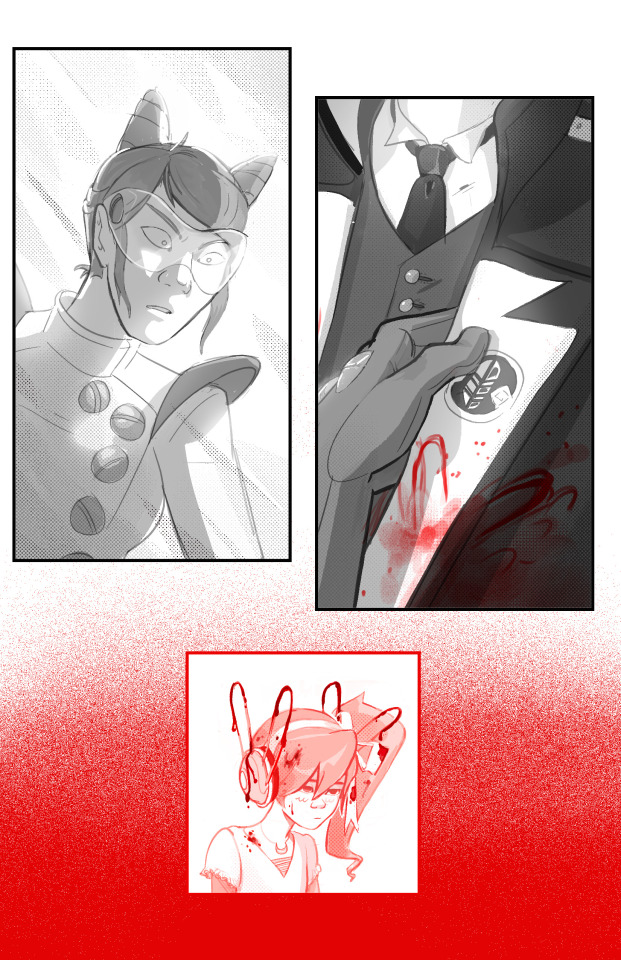

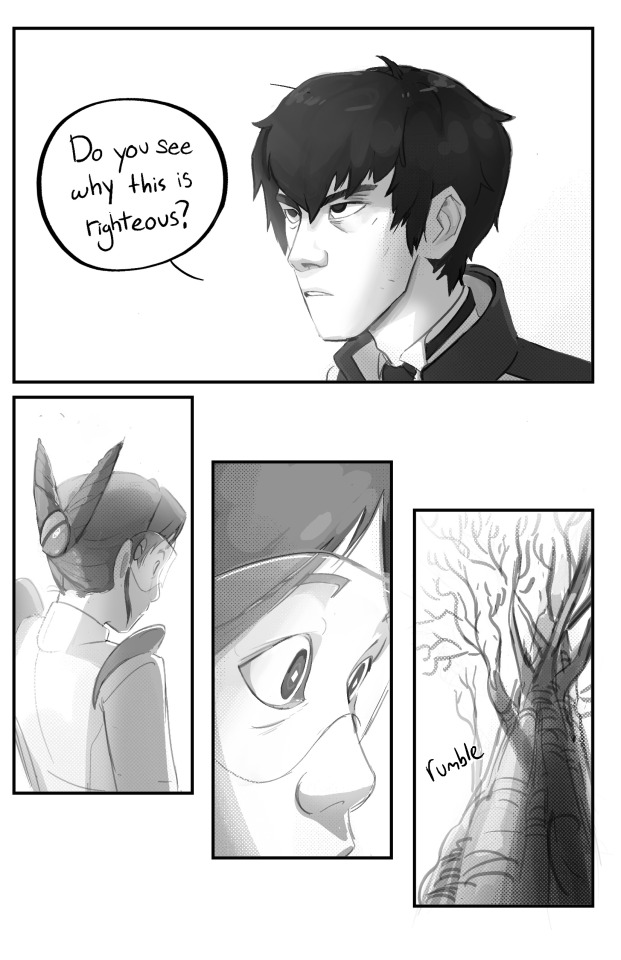
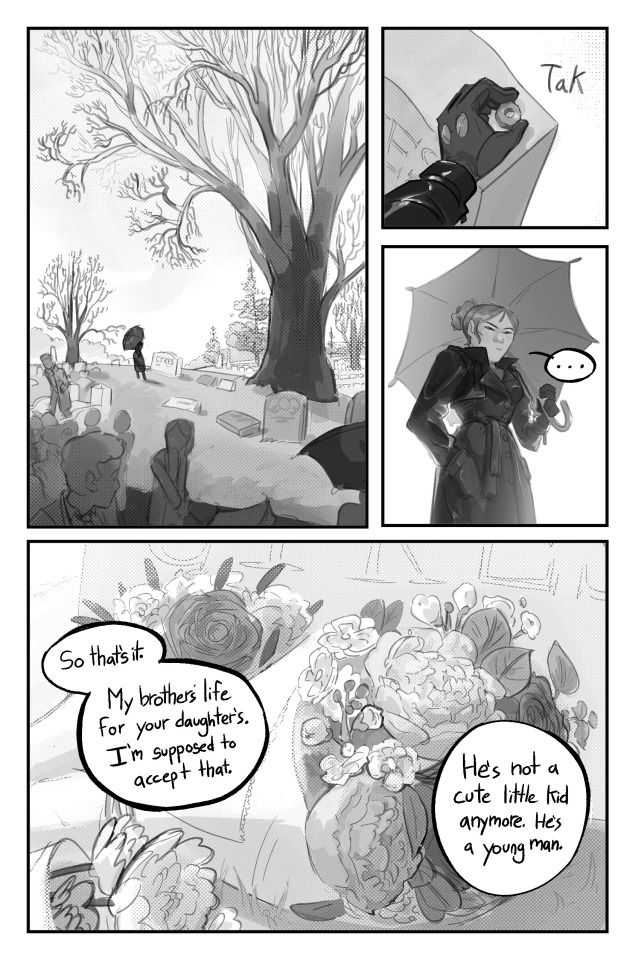

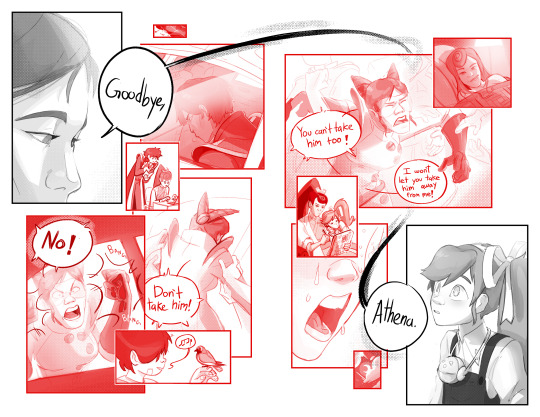


sinner, you better get ready
#aura blackquill#simon blackquill#athena cykes#ace attorney#dual destinies#i know i should have looked up japanese funeral traditions for Metis but researching it made me sad. sorry >_<#Also I hope Aura's critique of masculinity comes thru- that its constructed to extract value from the working class & excuse state violence#it changes how I percieve Auras resentment of Athena- its almost less directed at her and more at the concept of innocence itself#that is: the binary of innocence & guilt which a foundational myth of the carceral state and simon wields against himself to save athena.#ANYWAY Aura have big tiddy and hate the system and that is why we simp#Also the subtitle is a linga ignotica lyric and a folk song
3K notes
·
View notes
Text
SOLMAZ SHARIF: I was recently reminded of a story of a political prisoner—I don’t know if I want to share this. . . This political prisoner, who had been convicted and was facing the death penalty, was in a large cell with about twenty other political prisoners. Periodically, the guards would come and call one of their names and take that person out to be executed. When this political prisoner’s name was called, the prisoner stood up and started singing “The Internationale.” The whole cell sang along, and that was their farewell. But when the prisoner went into the hallway, the guards told them that they weren’t going to the gallows. They were being transferred to a different prison. The guards took them to the latrine, and while the prisoner was in there, they realized they wouldn’t have wanted “The Internationale” to be their last song, and started reciting a poem by, I believe, Hafez from memory.
For me, the why of poetry has become the reason revolution must happen to begin with. It’s no longer the conditions that make revolution inevitable, but what’s waiting for us on the other side of it. That required me to be more vulnerable—removing the conceptual frame was an act of that allowed vulnerability. . .
ALINA STEFANESCU: That reminds me of how my parents made me memorize poetry. They said: If you find yourself in prison, if you lose your home, family, livelihood, everything, the poems you remember will keep you whole. At the end of the day, alone in a cell, no one can steal the stanzas you remembered. The recitation itself is a radical act of refusal. Maybe poems sustain the hope and selfhood that carceral systems aim to extinguish.
SOLMAZ SHARIF: I love that. I was reminded of poetry’s capacities at the beginning of the pandemic. When lockdown started, some of my artist friends who work in other mediums suddenly couldn’t do any work. I remembered, for readers a poem is something you can carry with you anywhere, and for poets, writing a poem is an action that you can undertake anywhere. You don’t need physical materials. I hadn’t decided to turn my attention toward those qualities, however; I was forced to. My idea of poetry is tied inextricably to my early understanding of carcerality and war—both of which evaporate all that seems solid. And poetry seems especially able to survive these things. I bristle at the word hope, but the poem’s scrappy thereness is enough for me. In an interview late in his life, Mahmoud Darwish says, “poetry changes only the poet.” Some people understand that statement as pessimistic or cynical or jaded. Or maybe see it in line with Auden’s choppily quoted “poetry makes nothing happen”—a quote betrayed in the two words that follow: “it survives.” Auden is often quoted to fall neatly into that neoliberal ethical bypass of so much American literature. But I see the Darwish quote as honoring that even when a poem can’t be anything else, that it will be enough. I’m surprised by this turn in my own work, but the lived practice of poetry in my life made it inevitable.
— Solmaz Sharif and Alina Stefanescu, in conversation for BOMB Magazine
#maybe poems sustain the hope and selfhood that carceral systems aim to extinguish !#w#interview#solmaz sharif#all beautiful poetry is an act of resistance
282 notes
·
View notes
Text
"Murder is Werewolves" - Batman
I don't got the SPOONS to do this thought train justice, I have seriously been trying to write this thing for MONTHS so just, idk, have this half baked skeletal outline of the essay I guess:
I don't believe that Batman's no-kill rule is primarily about rehabilitation or second chances.
His refusal to believe that Cassandra could have killed someone when she was eight years old because "how could a killer understand my commitment not to kill" is absolute fucking MOON LOGIC from a rehabilitationist standpoint. No jury on the planet would think for even a second that she could reasonably be held accountable for her actions in that situation! Her past cannot condemn her to being incapable of valuing human life under a rehabilitation centering framework. However, Batman's reasoning makes perfect sense if he believes that killing is a spiritually/morally corrupting act which permanently and fundamentally changes a person, and that corruption can never be fully undone.
Dick Grayson killing the Joker is treated both narratively and by Batman as an unequivocally WIN for the Joker. The Joker won by turning Nightwing into a killer. Note that this is during a comic in which the Joker transforming people was a major theme! Batman didn't revive the Joker because the Joker deserved to live; he revived the Joker to lift the burden on Dick.
His appeal to Stephanie when she tried to kill her dad is that she shouldn't ruin her own life. He gives no defense of Cluemaster's actual life. Granted this is a rhetorical strategy moment and should be taken with a generous pinch of salt, but it fits in the pattern.
When Jason becomes a willful killer, he essentially disowns him, never treats him with full trust ever again, and... Well, we can stop here for Bruce's sake. Bottom line is that his actions towards Jason do not lead me to believe that he thinks Jason can become a better person without having his autonomy taken from him, either partially or fully.
The Joker is, for better or worse, the ultimate symbol and vessel of pure, irredeemable evil in DC comics now. He hasn't been just another crook in a long time. He will never get better, he will only get worse. If you take it to be true that the Joker will not or can not rehabilitate, then there's no rehabilitationist argument against killing him.
Batman does not seem to consider it a possibly that he'll rehabilitate. Batman at several points seems to think that the Joker dying in a manner no one could have prevented would be good. Yet Batman fully believes that if he killed the Joker, he himself would become irredeemable.
Batman's own form of justice (putting people into the hospital and then prison) is fucking brutal and clearly not rehabilitative. He disrespects the most basic human rights of all criminals on a regular basis. It is genuinely really, really weird from a rehabilitationist standpoint that his only uncrossable line is killing... But it makes perfect sense if he cares more about not corrupting himself with the act of killing than the actual ethical results of any individual decision to kill or not kill.
In the real world cops are all bastards because they are too violent to criminals, even when that violence doesn't lead to death. Prison is a wildly evil thing to do to another human being, and you don't use it to steal away massive portions of a person's life if your goal is to rehabilitate them. In the comic world, Batman is said to be necessary because the corrupt cops are too nice to criminals and keep letting them out of jail. I don't know how to write a connector sentence there so like I hope you can see why this bothers me so damn much! That's just not forgiveness vibes there Batman!!
I want to make special note here of the transformative aspect. You don't simply commit a single act when you kill, no, you become a killer, like you might become a werewolf.
The narrative supports this a lot!
Why did Supes go evil during Injustice? He killed the Joker. Why did Bruce become the Batman Who Laughs? Bruce killed the Joker. Why was Jason Todd close to becoming a new Joker during Three Jokers? Because he killed people, to include the Joker.
Even if these notions of redemption being impossible aren't the whole of his reasoning (people never have only one reason for doing what they do) it is a distinct through-line pattern in his actions and reasoning, and it is directly at odds with notions of rehabilitation, redemption, and second chances.
So why does he give so many killers second chances?
Firstly because this doesn't apply to all versions of Batman. Some writers explicitly incorporate rehabilitation and forgiveness into his actions. You will be able to provide me with examples of this other through-line pattern if you go looking for them. The nature of comics is to be inconsistent.
Secondly the existence of that other pattern does not negate the existence of this one. People and characters are complex, and perfectly capable of holding two patterns of belief within themselves, even when they conflict to this degree. You can absolutely synthesize these two ideas into a single messy Batman philosophical vibescape.
Finally and most importantly to this essay: he has mercy on killers the same way that werewolf hunters sometimes have mercy on someone who is clearly struggling against their monsterous nature, especially if they were turned in exceptional circumstances or against their will. They understand that they are sick, damned beasts, cursed to always be fighting against themselves and the evil they harbor within. It is vitally kind to help them fight themselves by curtailing their autonomy in helpful ways and providing them with chances to do some good to make up for their eternal moral deficiency.
I think in many comics Batman views killers as lost souls. Battered and tormented monsters who must be pitied and given mercy wherever possible. (The connections to mental health, addiction, and rampant, horrifying ableism towards people struggling with both is unavoidable, but addressing it is sadly outside of the scope of this essay.)
Above all, the greatest care possible must be taken to never, ever let yourself become one of them, because once you have transformed the beast will forever be within you growing stronger.
To Batman, it is the most noble burden, the highest mercy, the most important commandment: Thou shalt suffer the monsters to live.
#batman#batman negative#batsalt#okay hopefully that will let peeps who don't wanna see me rant against bats avoid this?#i could write several books on the moral and ethical philosophies at play in the Batfam tbh#I'm like kinda mostly happy with this#pretty good for being slammed out in three hours while baking brownies#inspired muchly by my friend's talk about Batman acting in accordance with Presbyterian predestination#and how he is one of the most carceral of all superheroes#all people merely revealing through their actions what sort of person they already are#punishing them in the hopes they can suffer enough penance on earth to escape hell#how that can look like rehabilitation or redemption at a glance#but functions in a fundamentally different way#anyway hope this mess was an interesting read!#damian's tomfoolery
195 notes
·
View notes
